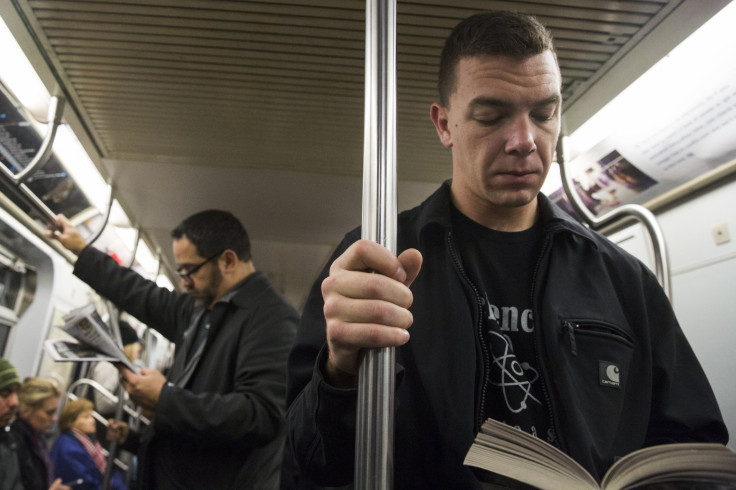Ebola In New York City: NYC Subways Won't Give You Ebola, But Here's What You Could Catch

Stop panicking: You won’t get Ebola on the New York City subway. Even though Dr. Craig Spencer rode the A, 1 and L trains in Manhattan and Brooklyn after he came back from Guinea with Ebola, the likelihood of contracting the virus on the train is extremely low. But experts say you could catch something else.
The Ebola virus lives in body fluids like blood, feces, semen, sweat and vomit. Direct contact is required for transmission, so a person would have to get those fluids into an open wound or mucous membranes, like the eyes, nose or mouth. The virus is not airborne, so don’t worry about coughing or sneezing subway riders unless they get saliva or mucus on you, according to Vox.
“Ebola is an extremely hard disease to contract,” New York Mayor Bill de Blasio said at a press conference Thursday. “Being on the same subway car or living near a person with Ebola does not in itself put someone at risk.” To prove this point, New York Gov. Andrew Cuomo told CNN he’ll ride the A, 1 or L trains Friday, and de Blasio did the same. Friday's ridership numbers were normal.
Scenes from Mayor @BilldeBlasio's morning commute on the subway. pic.twitter.com/dHxGjfEwAm
- NYC Mayor's Office (@NYCMayorsOffice) October 24, 2014You can, however, definitely catch a cold or the flu from someone sneezing nearby on the subway, according to a 2012 New York magazine story. Sneezing and coughing send tiny microorganism-containing droplets of fluid flying through the air, and people can get sick by breathing them in.
How about those handrails? Ebola can survive for several hours on dry surfaces like doorknobs, according to the Centers for Disease Control and Prevention, but bleach will kill it. Meanwhile, half of all handrails have fecal matter on them, microbiology professor Charles Gerba told ABC News. His studies have found E. coli and MRSA -- which can be fatal in rare cases -- on handrails.
Stainless steel is notorious for spreading germs, too. Gerba said your hands pick up about half of the germs on those metal poles. Weill Cornell Medical College’s PathoMap project found streptococcus, which can cause strep throat, meningitis and bacterial pneumonia, on the subway last year. A sample from a Times Square handrail also revealed enterococcus fecal bacteria, which can cause urinary-tract infections.
In response to Ebola's spread to New York City, the Metropolitan Transportation Authority has changed its cleaning policies. "Based on advice from health experts, the MTA has updated the protocols to ensure employees are issued nitrile gloves, use a 10 percent bleach solution for disinfection and double-bag any potentially infectious waste," reads an MTA statement to International Business Times.
To protect yourself from Ebola and other germs on the subway, wash your hands or use an alcohol-based sanitizer, get a flu shot and avoid other people's body fluids. If you're still worried, move to the least-crowded parts of the car or wear a mask and gloves.
In any case, don’t freak out, as Cuomo told CNN Friday morning: "Now being New Yorkers, a little anxiety can keep you safe, right? And it's not a bad thing. But undue anxiety is unproductive and there's no reason for undue anxiety in this situation."
© Copyright IBTimes 2024. All rights reserved.






















